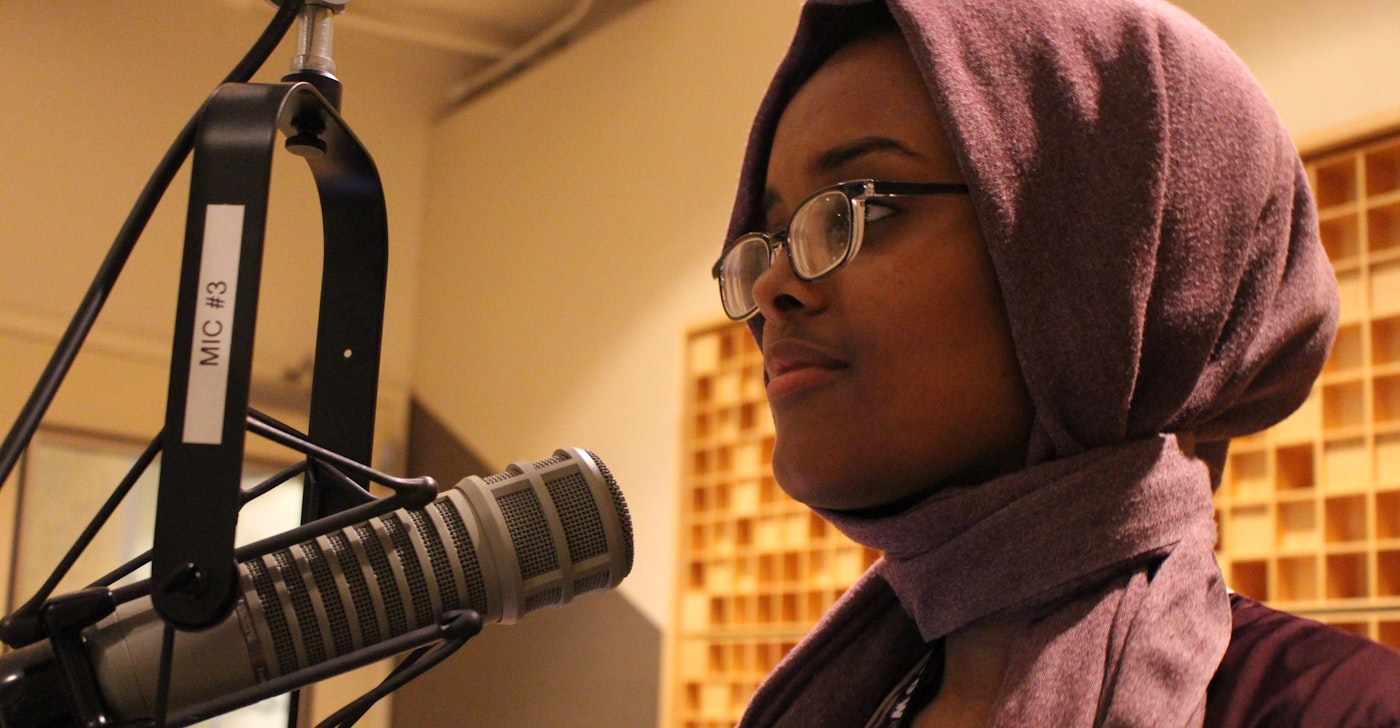
RadioActive
Stories produced by students participating in our youth media program. Meet the current youth producers, and learn more about the intensive, fun and free introductory radio journalism workshops we offer throughout the year.
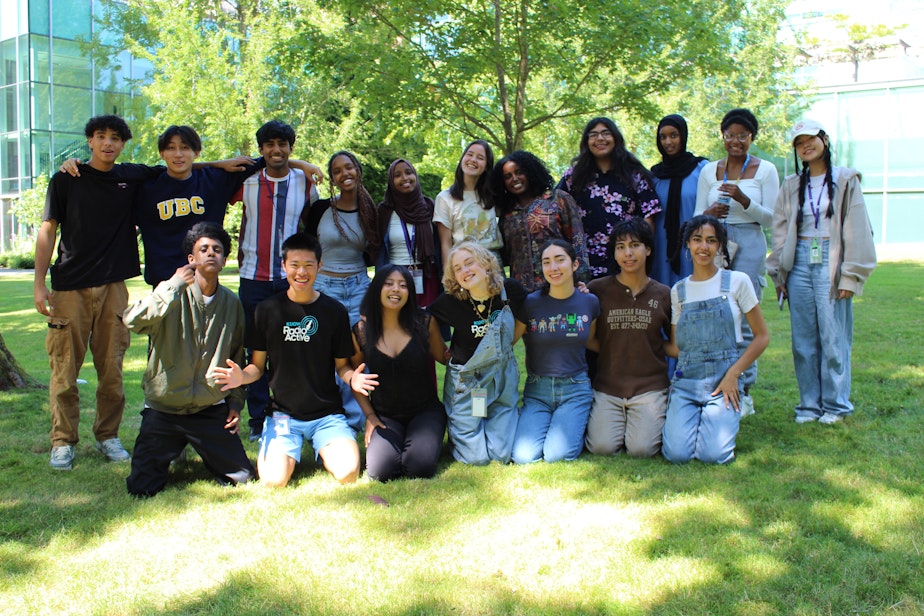

Sponsored
Episodes
-
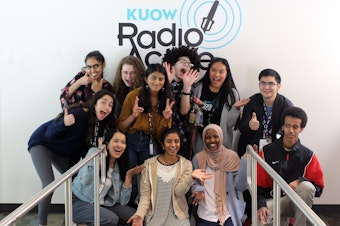
That’s a wrap! RadioActive’s 2019 podcast season
In 2019 RadioActive Youth Media worked with about 750 teens and tweens through our Intro, Advanced, and Community workshop programs. These young people produced 23 full-length feature radio stories, along with dozens of short radio stories and podcasts. Young people's voices and perspectives are not heard enough in the media - that's why RadioActive exists. Missed some of this year's incredible feature stories? Give them all a listen here.
-
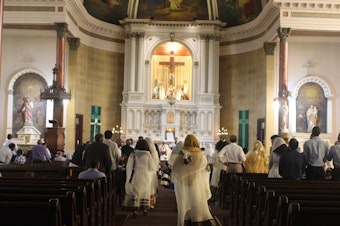
How faith defines a family — and in my case, divides it
When my dad immigrated to Seattle from Eritrea, the Eritrean Catholic church became his new community. He goes to mass every Sunday. There, he sings in Tigrinya, his native tongue, and prays to God. As a first generation Eritrean American, I feel the duty to keep our traditions, language and culture alive. But the church has never completely felt like my own. And my brother no longer attends church. How can I protect my community while staying true to myself? And how can my brother and father bridge this gap between them?
-
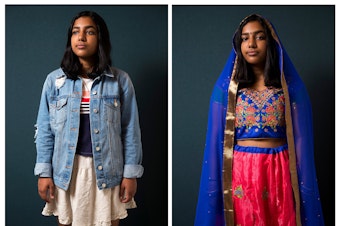
My mom wants me to have an arranged marriage. But I'm not sure
In India, 90% of people have arranged marriages. That might feel odd to those of us who grew up in the United States, like me. I’m a 16-year-old, first-generation Indian American, and I feel caught between two traditions when it comes to love. Will I choose my own path, or go down the traditional arranged marriage route like my mother?
-
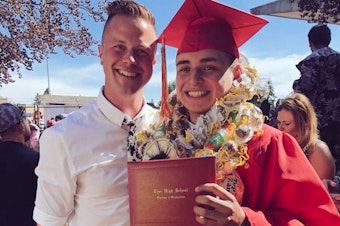
Middle school can be rough. Los Siete guides middle school boys through it
In middle school, you’re thrown into a completely new environment with hundreds of people you’ve never met before. Your body and brain are changing. You’re starting to learn how to grow up. This transition can be hard on young teens. They can fail in classes and have issues outside of school. However, at Chinook Middle School in Sea-Tac, a group called Los Siete provides guidance and support for middle school boys.
-
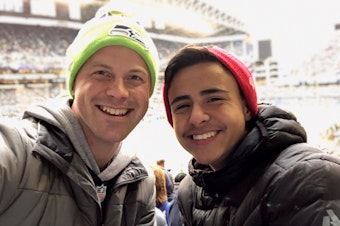
Being vulnerable doesn't make me less of a man. Los Siete taught me that
When I was twelve years old, I was always trying to get away from my family. Soccer was my escape. But when I didn’t have soccer, I was in my room with my door closed. I never talked to my mom. I didn’t have a close relationship with my sister, and I didn’t talk to my dad because he never seemed interested in talking to me. That’s what I thought it meant to be a man: to be silent and not show any weakness. I felt isolated. Then, in 7th grade, I met my physical education teacher, Reid Sundblad.
-
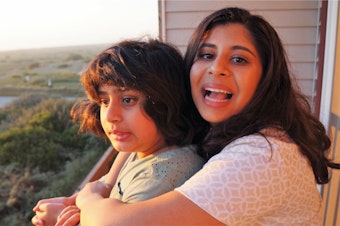
My sister has autism, and school keeps her engaged. But how will we care for her after graduation?
My sister Saba waits eagerly for her yellow school bus every morning. But Saba is a sophomore in high school. In three short years, she will leave our brick-bound high school, and her yellow school bus won't come by to pick her up any more. My family is grappling with what life will look like for Saba, and for us, after graduation.
-
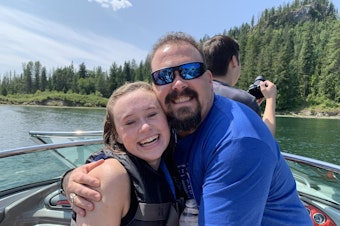
My mom found a sperm donor. 16 years later, he accidentally found us
All my life, the only thing I knew about my biological father was his number: sperm donor 893. Recently, we found each other through a genetic testing site, making me wonder if a stranger could become family.
-
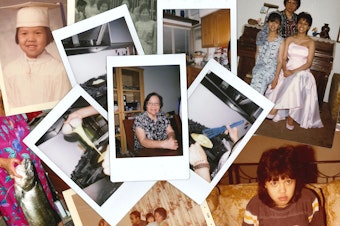
Hungry for knowledge of my culture, I head to my lola’s kitchen
We don't go to church for mass in my family. We go to my grandma's kitchen. Food is my tie to my Filipino culture. But I don't know if my connection to food is enough for me to call myself Filipino. I set out to use cooking as a way to dig deeper into my family's story and my own cultural identity.
-
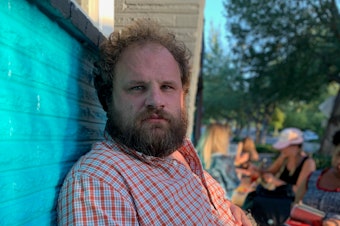
Eleven years sober, this stand-up comedian now helps teens in recovery
Sam Miller is a six-foot-six, 360-pound stand-up comedian. Sam's larger than life presence isn't the only thing that sets him apart on stage. In his comedy, he talks about his experiences with drug and alcohol addiction, incarceration and homelessness. Offstage, Sam works with young people struggling with those same issues.
-
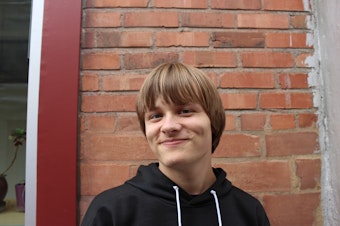
Advice from a neurodiverse teen on navigating the school system
In Washington State alone, 143,000 students receive special education services. I'm one of those students.
-
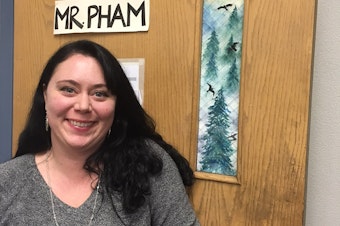
School windows are covered during lockdown. One Seattle teacher found a way to make art out of terror
During a lockdown, teachers must secure the classroom doors and windows. At Franklin High School in Seattle, they have found a way to address one of these security measures... with art.
-
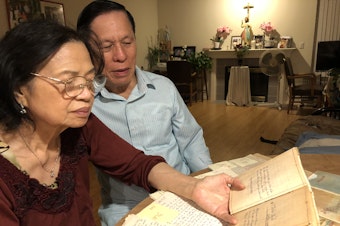
The secret diaries my grandma snuck out of a Communist prison in Vietnam
My grandfather was a South Vietnamese soldier during the Vietnam War. After the war ended, the Communist government imprisoned him in an re-education camp. As a way to connect with his family, he secretly wrote letters, poems and stories.